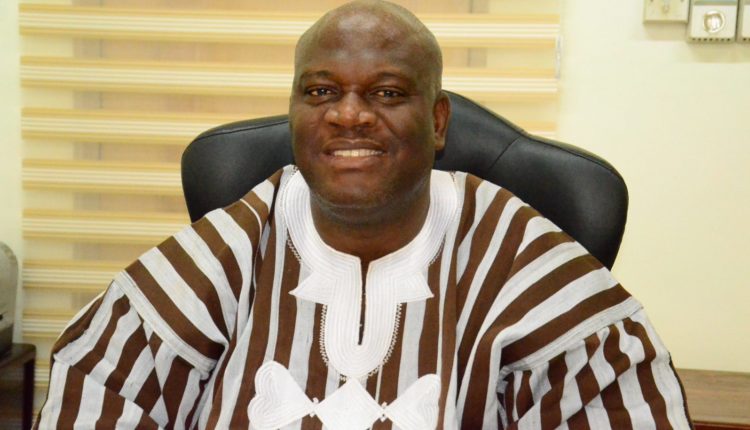We can’t keep blaming gov’t for floods – Henry Quartey calls for attitudinal change
The Greater Accra Regional Minister, Henry Quartey has said the government can do its best to prevent flooding, but the responsibility lies on citizens to perform their civic duties.
The Minister lamented the disregard for laws concerning sanitation in the country.
“Increasingly it’s becoming like the central government has not done its part and it’s as a result of central government that the city capital is flooding. Without necessarily comparing, these days because of the benefit of social media we tend to see things that ordinarily we would have heard with our ears or something. I don’t want to mention countries, but the western countries even experience floods and they will continue to experience floods.
“Indeed yes, they are there, but apart from the behavioral and attitudinal issues that we have in this country, which lead to indiscipline you would experience floods. So it brings about the directive Mr. President gave, remove all houses on waterways,” he explained.
According to him, residents, oftentimes, ignore the instructions from the Assembly to vacate homes built on waterways.
“They blame the assembly. Well, the assembly comes there, they give you a first warning, second warning, and third warning and what do they do? They keep building overnight and when it starts to flood, people say the assemblies are not doing their job. How else should the assembly do their jobs?” he quizzed.
Mr. Quartey stressed that it was the core responsibility of all citizens to respect the laws of the land as the laws of another man’s land.
“It is the civic responsibility for all of us to respect the laws that government pass because interestingly you board a plane with the greatest of respects from this place, you land in another man’s country and all of a sudden everything about them changes.
“He’s respecting the laws of that country right from the airport from wearing seatbelts, not dumping refuse and all manner of things. If you are going to go for two weeks holiday, they make sure they don’t fall foul of any of those laws.
“That same person jumps back on a plane two weeks later and right from Kotoka and he or she is arguing with immigration officers at the arrival hall. The next thing he gets out of the airport he has a piece of paper he drops it on the floor. What are the causes of this?” he told Joy Prime.
He added that floods may come, and the government will play its part, whether it’s enough is another conversation however, the attitude of citizens and the role they have to play cannot be ruled out.
The Minister’s comment comes on the back of Tuesday’s heavy downpour that resulted in flooding in Accra.
Rains that lasted nearly four hours clogged major roads in the capital, badly affecting commuters who were mostly heading to workplaces and schools.
Some areas affected include the Central Business District, Kwame Nkrumah Interchange, Dansoman, Odawna, Shiashie, Mateheko, Kaneshie, Adabraka, and Asylum Down.
The heavy rains also destroyed several shops as traders counted their losses after the floods subsided.
Earlier in May, the capital flooded for the second time in four days, areas like Kaneshie, Adabraka, Weija, Teshie, Kwame Nkrumah Circle, Dansoman, Tse Addo, and Tesano were the worse affected areas.
Destruction by floods
Many lives have been lost and properties destroyed due to the annual floods.
In 2011, floods in the country resulted in the death of more than 30 people nationwide, with 15 victims in Accra.
In 2015, 159 people were confirmed dead from a twin disaster of floods and fire explosion.
It was one of the deadliest catastrophes to befall the country, leading to days of mourning as families lost their loved ones.
A fire explosion occurred after several hours of rain and flooding around the Kwame Nkrumah Interchange enclave.
In June 2020, a man died trying to warn neighbors about flooding at Odawna in Accra.
A resident explained that the deceased was trying to salvage some items during the flooding when he was electrocuted.
At Achimota, a bus was trapped in a storm drain. It was not carrying passengers. At least 20 persons were rescued from that incident after a downpour that lasted hours.
Flooding in Accra has also killed people and displaced people in the city in 1995, 1997, 2001, and 2010.
Interventions by authorities
For many Ghanaians, the annual ritual of the capital city flooding has become a cause of anger.
Efforts by the city authorities to check the situation continue to be undermined by recalcitrant residents and the weak enforcement of bye-laws.
The government has attempted to address this problem by dredging rivers and gutters before rainy seasons, but this appears to be ineffective.
In May 2019, President Nana Akufo-Addo inspected two major projects handed out in 2016 to Dredge Masters Limited for the desilting and dredging of the Odaw channel and restoration of the Korle Lagoon to avert the perennial flooding in Accra.
The scope of work also included the redesign and construction of the KLERP interceptor and breakwater at the outfall.
The channel under the scope starts from the Odaw Onyasia confluence at Carprice in Accra, through Avenor, Kwame Nkrumah Interchange, and the Agbogbloshie-South Kaneshie drain (the Upper and Lower Lagoon).
The two projects the president inspected were the Accra Sanitary Sewer and Storm Water Drainage Alleviation Project at Circle and the Drainage Construction at Kaneshie 1st Light Intersection.
Other causes of floods are the improper planning of settlement in Accra, choked gutters that block the drainage system, and a few other human factors.
Many Ghanaians have since taken to social media to express their concerns and share photos and videos of flooding.



